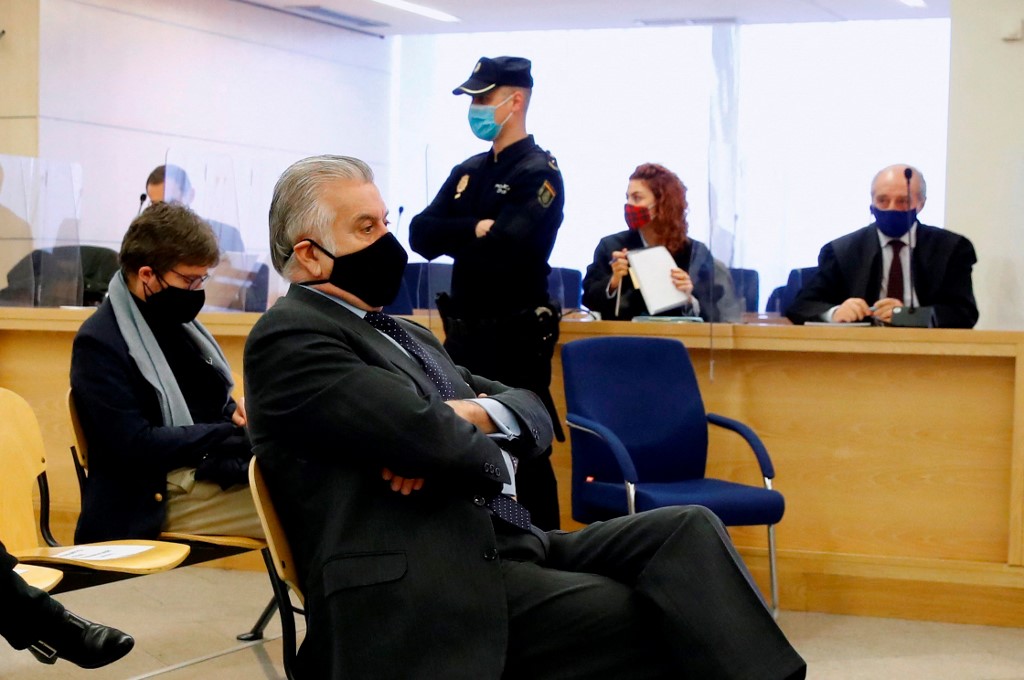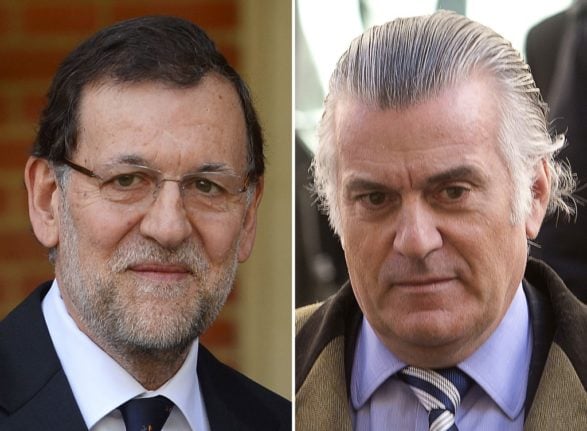The case centres on a system of parallel bookkeeping used by the PP to manage undeclared funds that was run by Luis Barcenas, the main suspect, who served as the party treasurer between 1990 and 2009.
Two former PP prime ministers will testify at the high-profile trial which opened on Monday morning at the National Court in Madrid and will run until May.
One is Mariano Rajoy, who served as premier between 2011-2018 and has always denied any knowledge of the system, although Barcenas has testified he was “perfectly aware” of it.
José María Aznar, who was Spain's prime minister between 1996-2004, will also testify alongside various other former top party officials.
Just days before the trial opened, Barcenas sent a letter to the prosecutors professing his “willingness to collaborate with the justice system” in a dramatic U-turn that has added further drama to a case that has gripped the nation.
In the letter, he said “Mariano Rajoy was perfectly aware of all these activities to the point that in 2009 we had a meeting in his office in which I showed him the slush fund accounting papers”.

Barcenas in the dock as trail opens on Monday February 8th. Photo: AFP
Rajoy, who at the time was leader of the opposition, then destroyed them “in a paper shredder without knowing I'd kept a copy”, Barcenas wrote.
The alleged slush fund, which was fed by corporate cash donations, operated between 1990 to 2008 and was used to pay bonuses to party leaders, including Rajoy, as well as for the renovation of the party's Madrid headquarters,
Barcenas has said.
Deal breaker
Details of the accounts emerged in the so-called “Barcenas papers” which were first published by El Pais newspaper in 2013.
In his letter, which was published on Thursday, Barcenas said he was now willing to talk after the PP failed to honour a deal in which he would keep silent as long as they ensured his wife did not go to jail.
Barcenas himself is serving a 29-year sentence over the so-called Gürtel case which centred on a vast system of bribes given to former PP officials in exchange for juicy public contracts between 1999 and 2005.
His wife was also convicted for her role in the case and began serving a 12-year sentence in December.
The trial comes at a difficult time for the main opposition Popular Party which is currently campaigning ahead of Sunday's regional election in Catalonia as polls suggest the faction is facing a dismal result.
Earlier on Monday, PP leader Pablo Casado – who took over in 2018 after Rajoy was forced out as premier and party head – said he could not take responsibility for events that happened before his tenure.
That PP “no longer exists” he told Onda Cero radio.
By AFP's Diego Urdaneta
READ MORE:



 Please whitelist us to continue reading.
Please whitelist us to continue reading.
Member comments